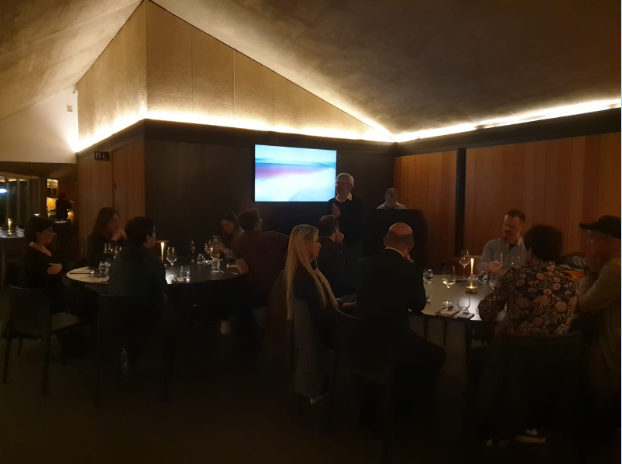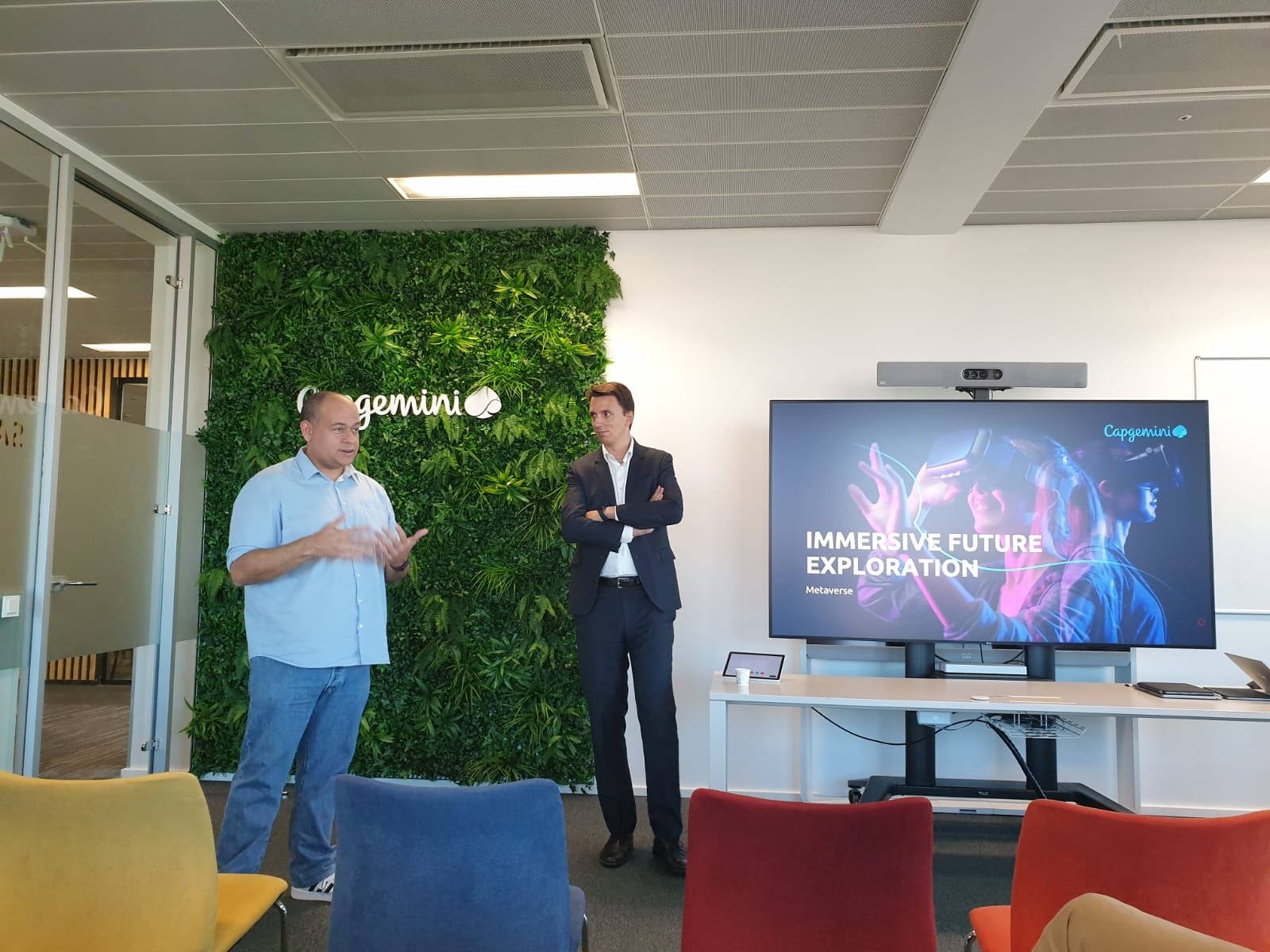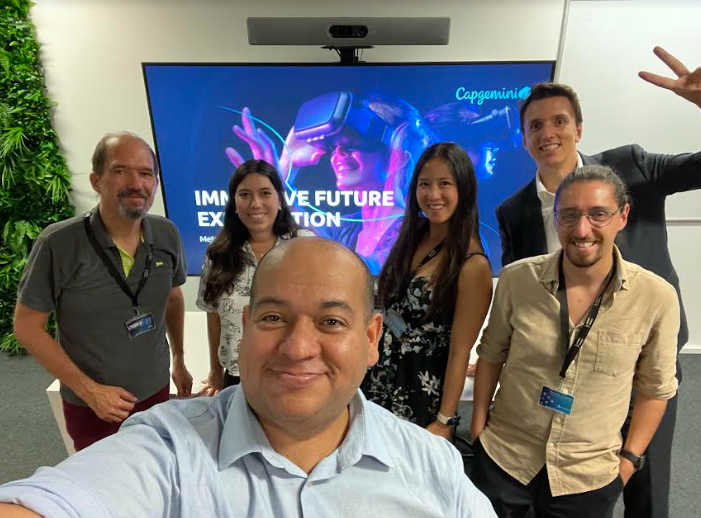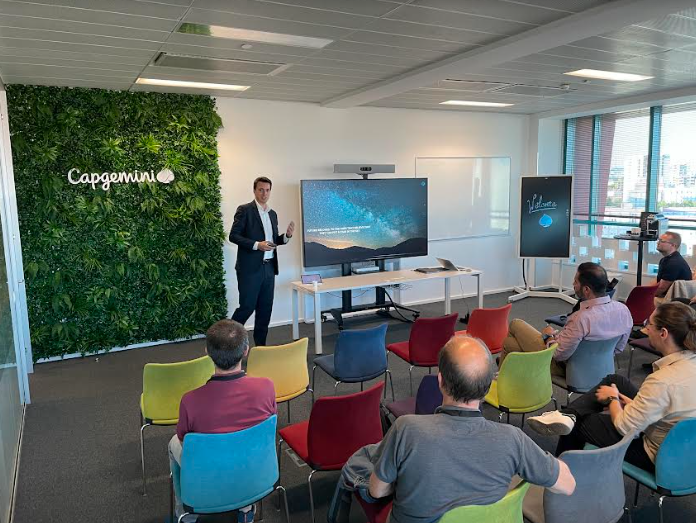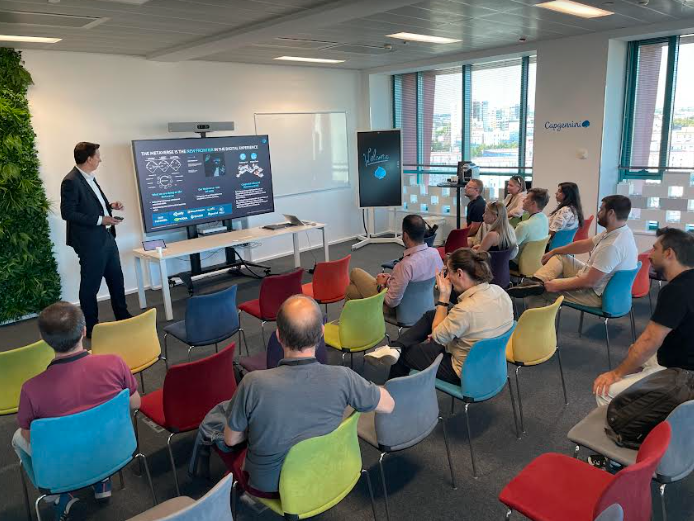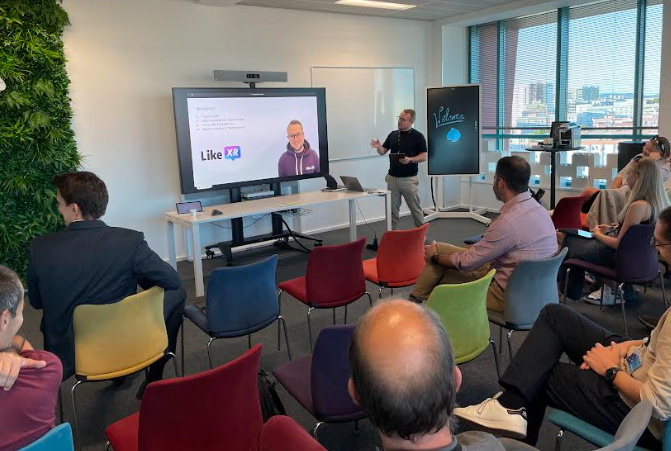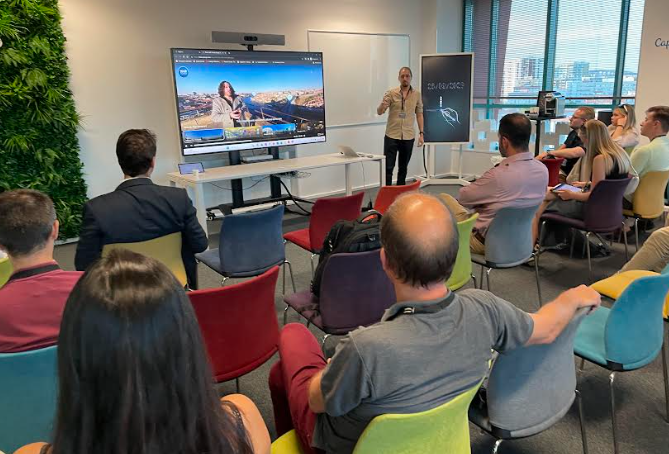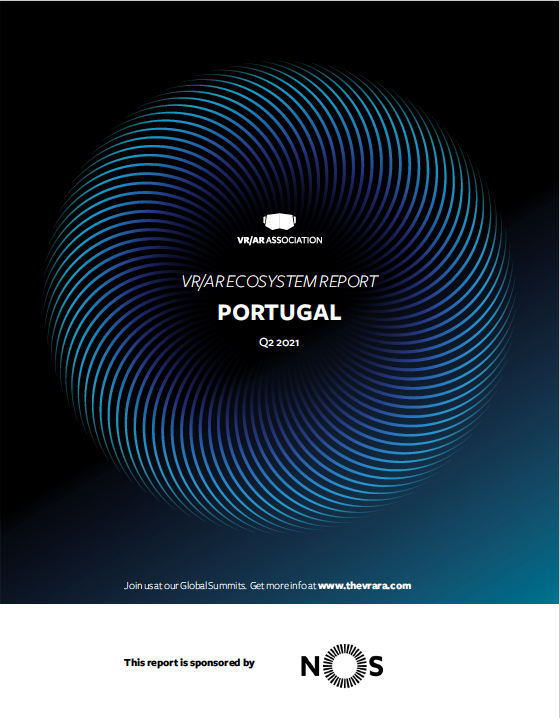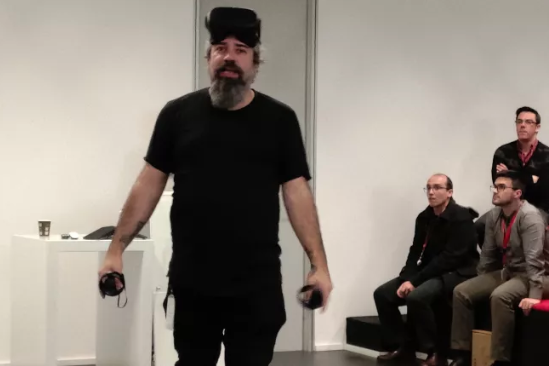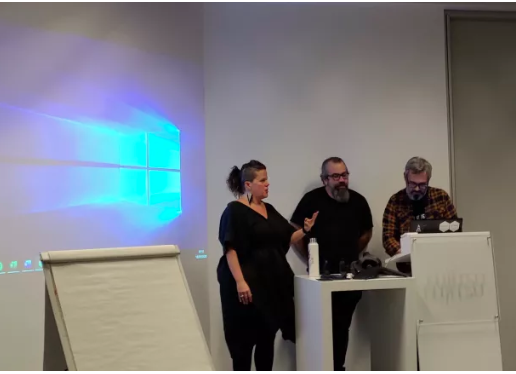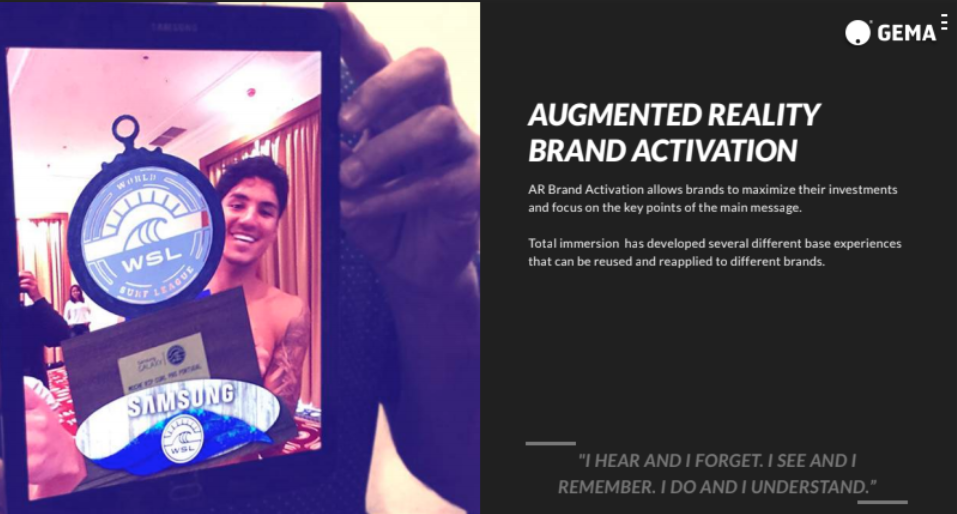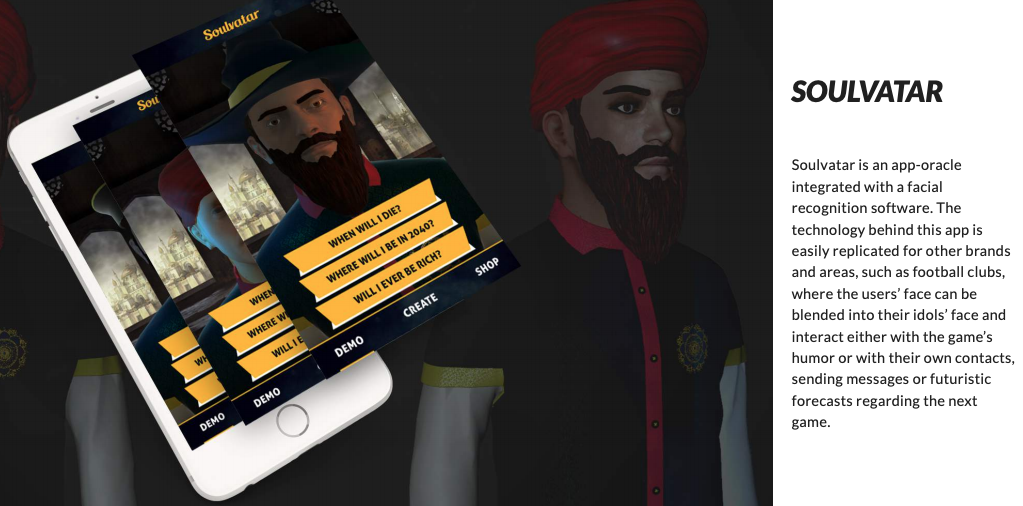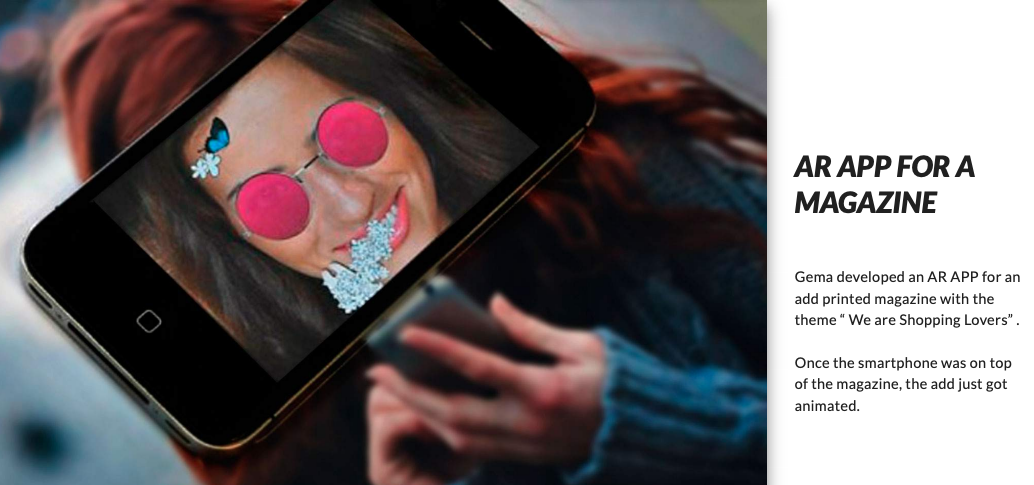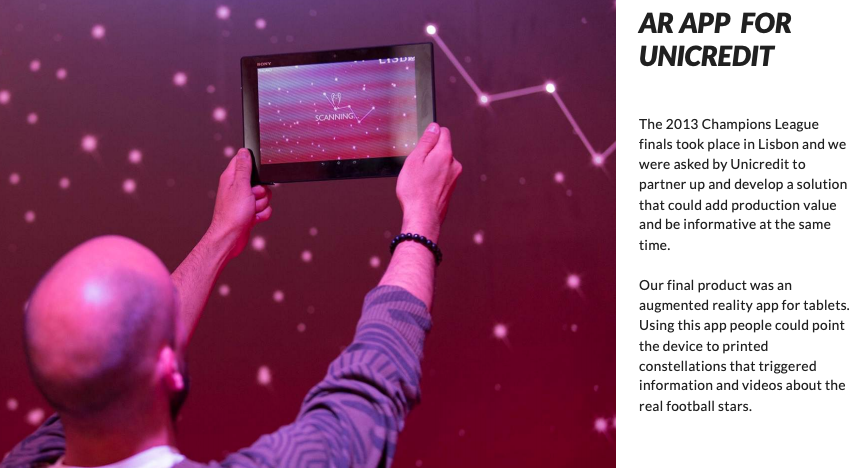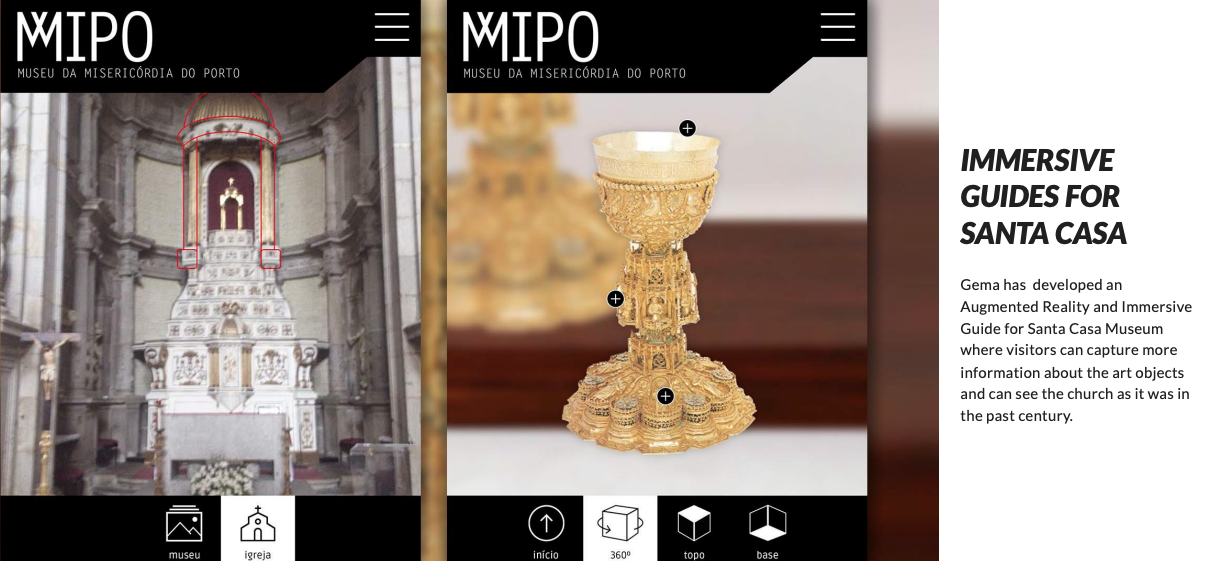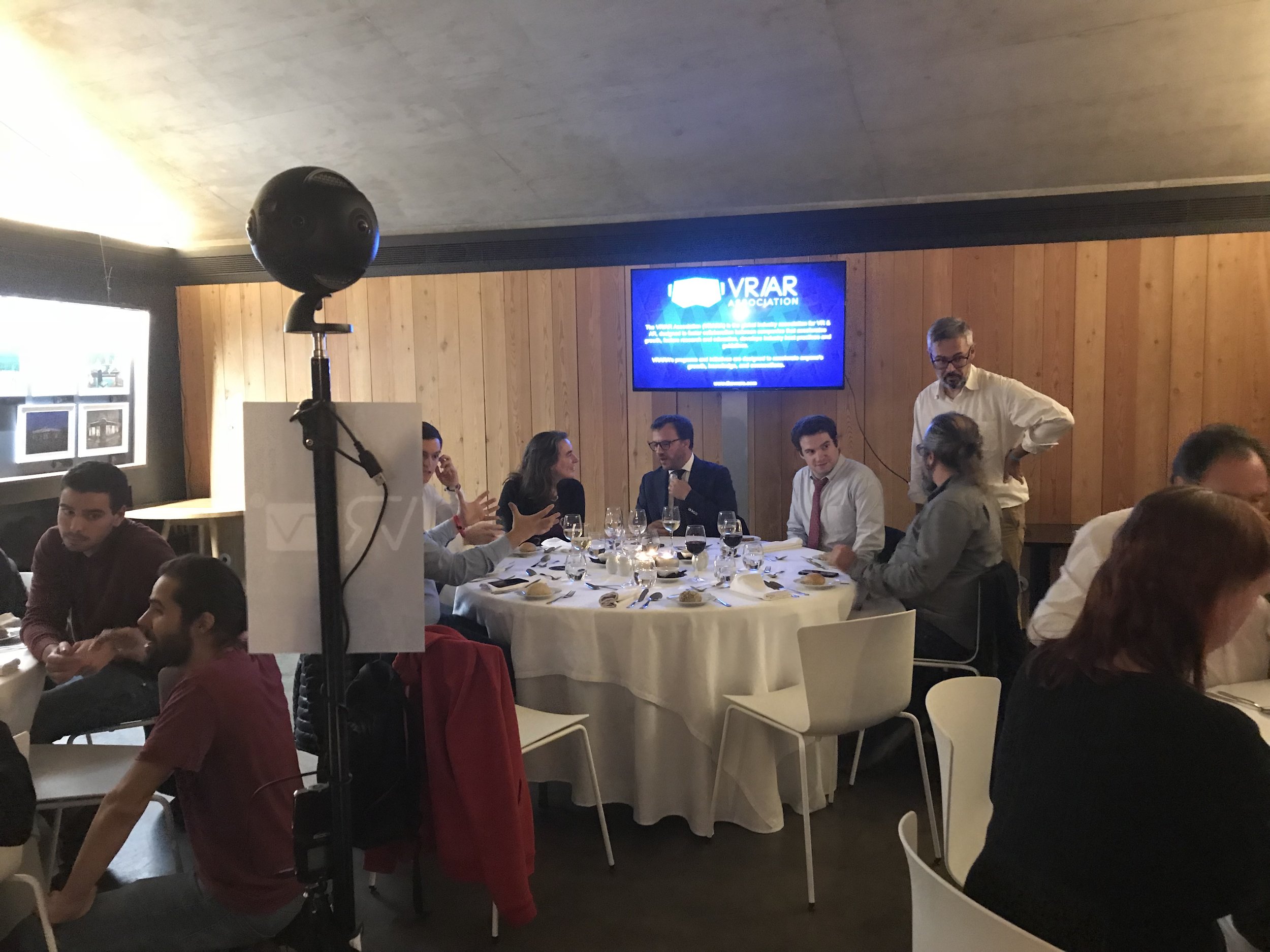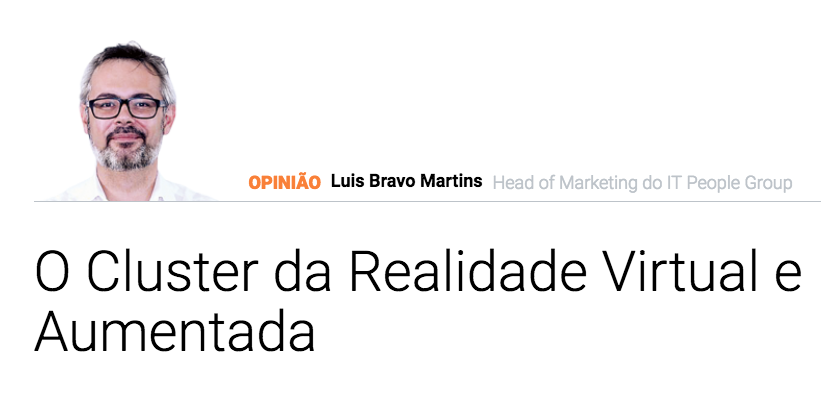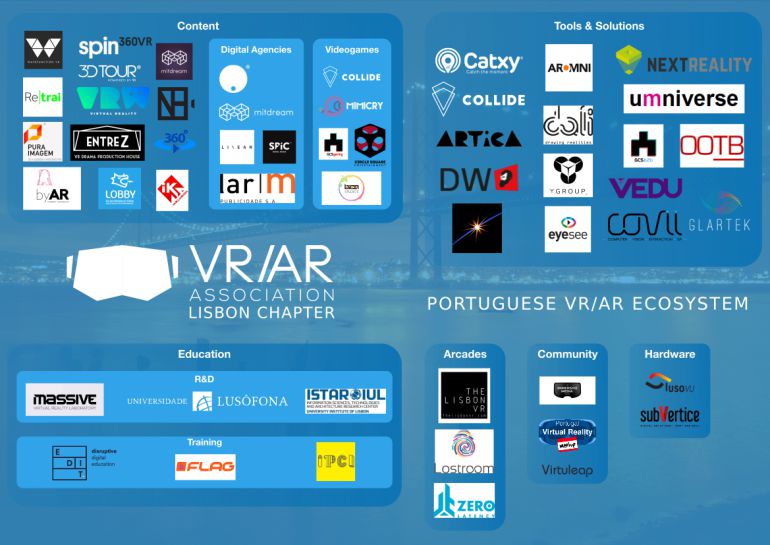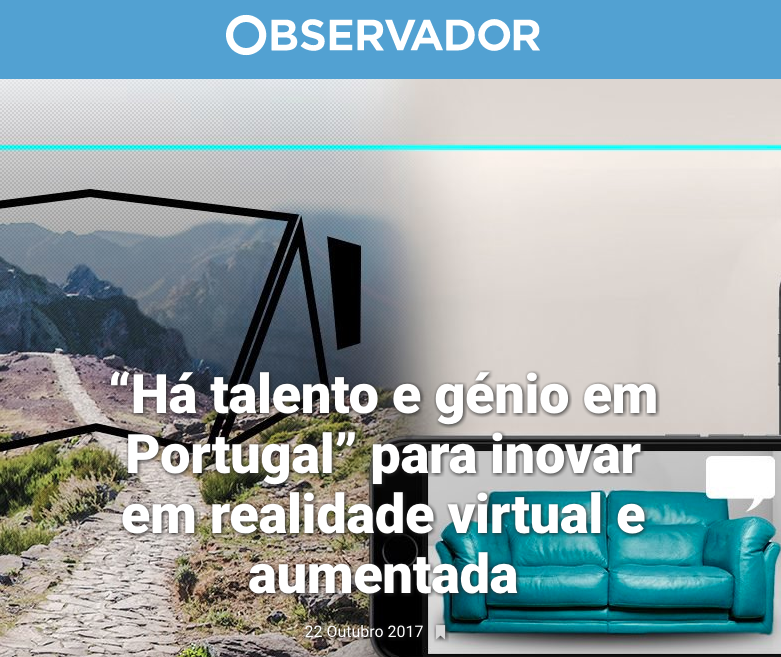E isso já funciona?
Já funciona há algum tempo, a realidade aumentada não é uma coisa nova. Há aplicações com esta tecnologia nos smartphones nos últimos cinco/sete anos.
O Pokémon GO, por exemplo?
Exatamente. Foi a primeira aplicação a chegar a um grande número de consumidores e a ensinar o que é a realidade aumentada.
Mas o Pokémon GO não é tecnicamente realidade aumentada, pois não?
Tecnicamente, é a utilização mais básica que se pode fazer da realidade aumentada, porque usa a localização GPS do utilizador e baseando-se nessa informação mostra o conteúdo relevante. A diferença agora é que a realidade aumentada tem reconhecimento de imagem. Isto significa que a câmara do telefone ou, no futuro, dos smartglasses sabe reconhecer objetos, lugares e pessoas e a partir desse reconhecimento dá informação relevante ao utilizador.
É detentor de nove patentes. São todas de realidade aumentada e virtual?
Sim, tenho nove patentes, mas não são todas de realidade aumentada e virtual. Uma delas, por exemplo, diz respeito a um tablet para carros. Hoje, a Tesla e todos os novos modelos de carros usam essa tecnologia.
E estão todas a usar a sua patente?
Fiz as patentes quando trabalhava na Verizon, que nos EUA é o que a Vodafone é na Europa, mais ou menos. Tecnicamente, as patentes são da Verizon.
Mas também trabalhou com realidade aumentada enquanto estava na Toys R’ Us, certo?
Como referi, a tecnologia não é nova. Em 2013, estava a implementar uma tecnologia de realidade aumentada para compras — o consumidor chegava à loja e podia apontar a câmara do telefone a uma caixa de LEGO, por exemplo, e ter informação –, o objetivo era trazer os consumidores à loja e fazê-los interagir com os produtos. A realidade aumentada é muito poderosa para que as marcas se liguem emocionalmente aos utilizadores. Imagina a caixa de LEGO abrir-se sozinha à tua frente e a construção ganhar vida.
Nas lojas LEGO já há ecrãs que permitem fazer isso. Televisores grandes com câmaras que apontamos aos legos para vermos a construção.
Sim, isso é outra forma de interagir com realidade aumentada. E não é preciso que o consumidor pegue no smartphone.
Agora que os smartphones têm ferramentas próprias de realidade aumentada nos sistemas operativos, como o ARCore, para o Android, e o ARKit, para o iOS, qual é que acha que vai ser a grande utilização desta tecnologia?
Tanto a Google como a Apple estão a fazer boas coisas para a indústria. A limitação da Google, como os produtores e os utilizadores mais ávidos sabem, é haver fragmentação entre equipamentos [muitas pessoas têm telemóveis com sistema operativo Android, mas em muitos modelos diferentes]. Isto ao contrário da Apple que quando lançou o ARkit ficou disponível em 300 ou 500 milhões de aparelhos. Quando a Google anunciou o ARcore, este ficou disponível num ou noutro modelo Android apenas. No entanto, quando os utilizadores começarem a comprar novos telefones e a fazer update ao sistema, toda a gente vai ter realidade aumentada nos telemóveis, tal como hoje todos temos GPS.
Voltar ao índice
“Há projeções de 80 a 90 mil milhões de euros”
Qual vai ser o próximo Pokémon GO?
Acho que o Pokémon é um jogo que surpreendeu porque mostrou que as pessoas querem ir “lá fora” e jogar com imagens de pequenos monstros à frente. O IKEA já tem uma app fantástica onde se pode “experimentar antes de comprar” móveis para as casas. Podemos, por exemplo, ver como fica um sofá na sala apontando o telefone e vendo no ecrã como fica. Automaticamente dimensiona o móvel às dimensões da sala.
É a próxima app mainstream (para as massas)?
Vão existir bastantes killer-apps para compras ou viagens. A app do IKEA é um bom exemplo. Mas há outra app que acho muito interessante que é a measuring tape [fita para medir, em português]. Quando uma pessoa está a decorar a casa ou a medir qualquer coisa tem de ter uma régua ou fita métrica, mas com esta app aponta a câmara e ela mede as dimensões.
Eles estão a trabalhar com a VRARA?
Muitas dessas empresas são parte da associação.
Para startups que trabalhem com realidade aumentada ou virtual, quais são as maiores dificuldades?
As maiores dificuldades começam por terem de adquirir conhecimento e pesquisa. Temos programas e iniciativas para ajudar estas empresas a acelerarem os negócios. Usamos casos de sucesso, modelos de negócio de empresas que já fazem dinheiro. Isto em todas as áreas, de videojogos à saúde e ao retalho. Temos diferente empresas que trabalham em protocolos específicos.
Hoje, quanto dinheiro está investido neste mercado?
Dois mil milhões, arredondamente. Grande parte disso está na Magic Leap que supostamente vai lançar smartglasses em 2018. A Snap, dona do Snapchat, também está a fazer muita coisa em realidade aumentada.
Trabalham convosco?
Ainda não, mas a Google está no nosso conselho consultivo. A Samsung também trabalha connosco.
A Bloomberg diz que em 2021 a realidade aumentada e a virtual vão representar um mercado de 401 mil milhões de dólares. É verdade?
Os números são realmente surpreendentes. A Goldman Sachs faz projeções de 80 a 90 mil milhões de euros. Dependendo do ano. 2020 ou 2025, as projeções envolvem sempre números muito grandes. O que é preciso perceber é que a realidade aumentada vai fazer parte das nossas vidas quotidianas. A realidade virtual é maior em entretenimento, filmes, jogos, mas também em saúde, cuidados de saúde e hospitais. Há clínicas a comprar capacetes de realidade virtual e a tratar pacientes para coisas como ansiedade ou lidar com a dor.
Voltar ao índice
“Portugal está pronto para este mercado global”
O que o traz a Portugal?
Estou aqui porque está muita coisa a acontecer em realidade aumentada e virtual no país. Desde que cheguei, há apenas um dia, já me reuni com dez empresas.
Pode indicar algumas?
Uma é a IT People, que já trabalha com o Microsoft Hololens [óculos de realidade aumentada] há um ano e meio. São já um parceiro da Microsoft, já foram galardoados com o prémio Microsoft DX. Trabalham também o ARkit, ARcore, são verdadeiramente multiplataforma nos projetos que fazem.
Já os conhecia?
Só os conheci quando vim cá. Acho que é um desafio comum: pessoas fora de Portugal nesta indústria não conhecem o talento que há em Portugal. Por isso estou aqui e a começar este capítulo da VRARA em Portugal, para expor estas empresas fora de Portugal. E se tudo correr bem trazer mais clientes a estas startups.
Já têm presença noutros países?
É a nosso 40ª presença. Temos nas principais cidades na América do Norte, na Europa e na Ásia. E agora em Portugal.
Em comparação com os outrosmercados, como é Portugal?
O talento e o dinamismo são os mesmos. A IT People faz o mesmo que a app do IKEA faz. Se alguém tiver uma loja com produtos semelhantes, há talento em Portugal para criar isso.
É a sua primeira vez no país?
Não, já tinha vindo quatro vezes, sempre a Lisboa. Todas as vezes fico maravilhado com o país. Especialmente nesta viagem, sinto uma energia diferente. Ouvi dizer que toda a gente se está a mudar para Lisboa.
Sim, a cidade está a mudar muito, mas não é só Lisboa. Há um grande número de startups no Porto e noutras cidades. O que sente em relação ao know-how português em tecnologia?
Estou muito cativado. As empresas com que tenho falado em Portugal estão famintas por mais clientes e por chegar a mais gente, por isso é que nos queremos ligar a elas. Temos 3.800 empresas conectadas e o nosso objetivo é fazer com que todas cheguem aos consumidores.
Também é um empreendedor?
Sim, trabalhei na Toys’ R’ us, mas tive a minha startup que depois vendi a uma grande empresa. Também criei outra startup chamada Flyby, que foi comprada pela Apple. Sinto que posso contribuir muito como diretor executivo global desta associação. Tive startups, trabalhei com startups quando trabalhei para grandes empresas e isso é uma boa dinâmica.
Em Portugal, vê o espírito empreendedor?
Claramente. O que vejo que é precisam de mais exposição, mais investimento para se tornarem globais. Portugal está pronto para este mercado global. O talento e o génio está cá e, mesmo que não se saiba, toda a gente vai usar realidade aumentada e virtual. Antes era o mapeamento, depois a geolocalização. Já se passou o mesmo com outras tecnologias.
"vivia em São Francisco, que me faz lembrar muito Lisboa. Não só por causa da ponte, mas também pelas colinas, a comida e pelo espírito das startups"
Começou a trabalhar com essas tecnologias?
Antes de trabalhar na Verizon tive uma startup de serviços de localização, em Sillicon Valley. Por causa disso vivia em São Francisco, que me faz lembrar muito Lisboa. Não só por causa da ponte, mas também pelas colinas, a comida e pelo espírito das startups.
Voltar ao índice
“A tecnologia está a ficar mais pequena, mais barata e mais leve”
Qual foi a primeira desilusão que teve com realidade aumentada?
Ainda são os primeiros dias, a tecnologia ainda está a evoluir muito. Mas atendendo que falámos do Pokémon Go, acho que foi enorme e que chegou a centenas de milhões de utilizadores. Foi um bom exemplo de realidade aumentada, mas o que me desiludiu é que foram passos de bebé. A utilização que o jogo faz de realidade aumentada é muito rústica, mas é a minha opinião. Para o público em geral, foi incrível. Como sou um techie, sei que a tecnologia consegue muito mais.
Qual é a empresa mais bem preparada para este mercado?
No lado do consumo, é definitivamente a Apple. Isto porque conhece o utilizador da melhor forma. Eles sabem como promover estas tecnologias e introduzi-las no mercado. Vão definitivamente liderar o mercado de realidade aumentada por uns tempos, a começar pelos iPhones. E vão começar a apresentar smartglasses nos próximos anos. A seguir, é definitivamente a Google e o Facebook. O Facebook está ter bastante sucesso neste mercado. O negócio deles é essencialmente a publicidade. Estão a fazer parceria com várias marcas e tudo.
O Facebook foi a primeira empresa a utilizar a realidade aumentada. No Instagram, temos as orelhas de coelho…
Isso mesmo. O Facebook, até a Apple ou a Snap. Para algumas pessoas pode ser engraçado ou geeky, mas eles fazem o reconhecimento facial com emoji, bitmoji, animojis…
Os animojis são realidade aumentada?
Os animojis usam o reconhecimento facial, é um tipo de realidade aumentada em que basicamente mapeiam a cara e criam um objeto 3D. Não é a definição de realidade aumentada, em que se sobrepõe digitalmente uma imagem num objeto do mundo real, mas está a usar a mesma tecnologia para reconhecer os objetos e criar um modelo 3D de uma cara como um coelho ou outro animal.
É um evangelista/promotor de realidade virtual e realidade aumentada, mas são mercados distintos ou complementam-se naturalmente um ao outro?
Os dois têm muito em comum, incluindo a tecnologia para criar experiências. Ferramentas como o Unity ou o Unreal Engine [software de criação de programas 3D utilizados para experiências RV e RA] são as mesmas e os objetos 3D que são criados para a realidade virtual podem ser utilizados na aumentada. Usam a mesma ferramentas “nos bastidores”, mas a diferença é o resultado final para o utilizador. Para a realidade virtual, o utilizador usa uns óculos especiais que criam um ambiente fechado, com a realidade aumentada é mais fácil, é possível “vê-la” com o smartphone, sem uso de acessórios.
Falava há pouco de smartglasses, mas ainda é preciso um computador externo para utilizá-los. Apenas os Google Glass, que não são tecnicamente realidade aumentada, usam o smartphone. Como acha que vai evoluir a tecnologia: andará connosco ou vamos ficar “presos” ao computador?
O que está a mudar é que a tecnologia está a ficar mais pequena, mais barata e mais leve. A realidade virtual começou com óculos, alguns ainda conectados por um cabo a um PC, mas isso está a mudar muito rapidamente. Todos – HTC Vive e Oculus – estão a lançar óculos de realidade virtual sem fios. Aconteceu o mesmo com os telemóveis no passado: eram muito grandes e ficaram muito pequenos. Acontece o mesmo com os óculos de realidade virtual e com os de realidade aumentada. O que também é interessante são os wearables [tecnologia que se veste] como o Apple Watch. A minha opinião é que a Apple vai introduzir uns smartglasses nos próximos anos, estão apenas à espera que o consumidor esteja pronto. A Apple não gosta de ser prematura nos lançamentos de tecnologia.
"a Apple conhece o consumidor muito bem e sabe como meticulosamente introduzir tecnologia no mercado e adaptar-nos a novos conceitos de tecnologia"
Isso significa que estamos a ser “educados” para usar estas tecnologia de realidade aumentada?
Sim, exatamente. Por isso referi que a Apple conhece muito bem o consumidor e sabe como introduzir meticulosamente tecnologia no mercado e adaptar-nos a novos conceitos de tecnologia. Uma das coisas que vi no evento de lançamento do iPhone X foi o Apple Watch, que introduziu chamadas e rede própria. Isso significa que não é preciso o iPhone para fazer chamadas. É uma mudança drástica no comportamento do utilizador poder deixar o telemóvel em casa e ir correr ou nadar com o relógio e poder telefonar. É uma alteração enorme sem o consumidor perceber que está a alterar comportamentos.
A tecnologia no futuro, especialmente a de realidade aumentada, vai estar presentes nos óculos comuns?
Sim. As pessoas já não vão utilizar o smartphone para tudo. Provavelmente vai ser controlado por voz e com auxílio de assistentes virtuais como a Siri.
Quanto à VRAR Association. É uma associação de influência para a implementação destas tecnologias ou para “evangelização”?
Todas as indústrias têm uma associação. Nós somos a associação para esta indústria: estamos a educar e a evangelizar o mercado, tanto os consumidores das empresas que se juntaram a nós como as empresas que querem entrar neste mercado.
Que empresas?
A Boeing está no nosso comité, a General Motors, entre muitas outras. Conseguimos construir nos últimos anos um bom ecossistema. Há outras associações locais para realidade virtual e a aumentada, mas nós somos a maior, de longe.
Source/Original article here






